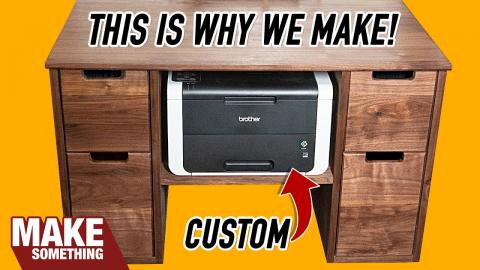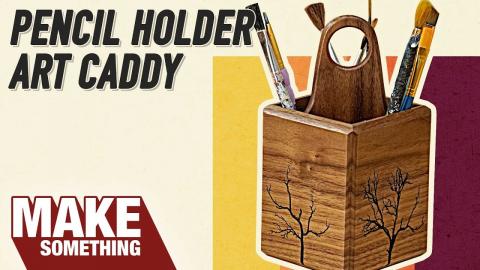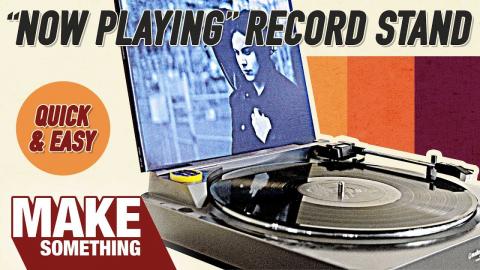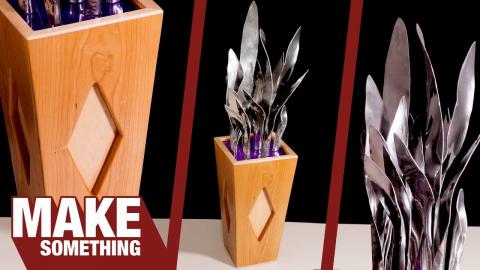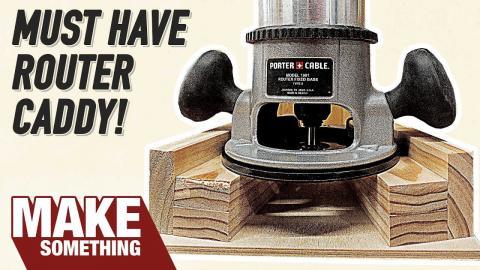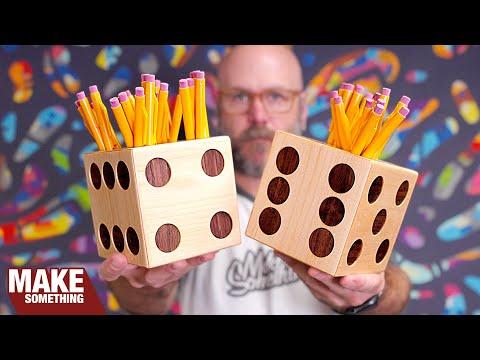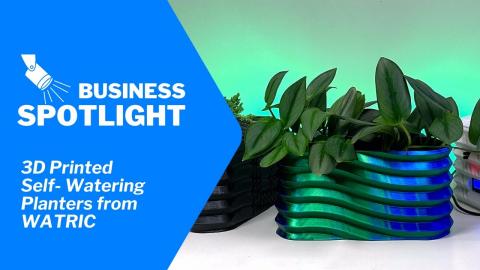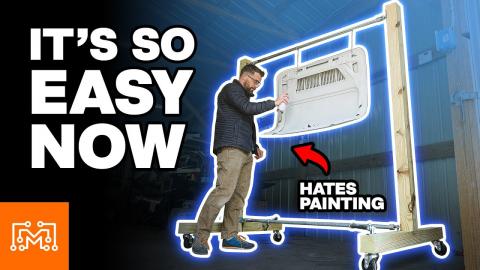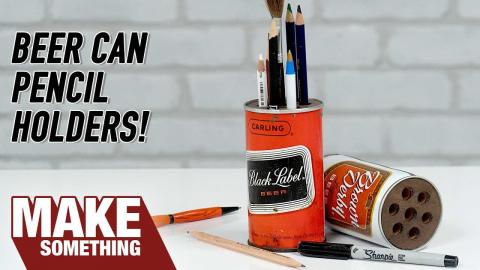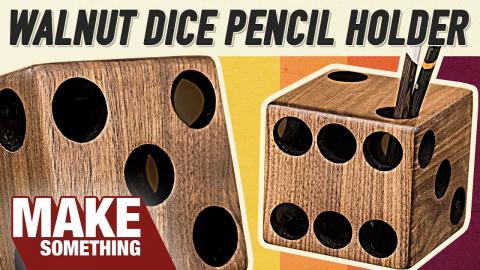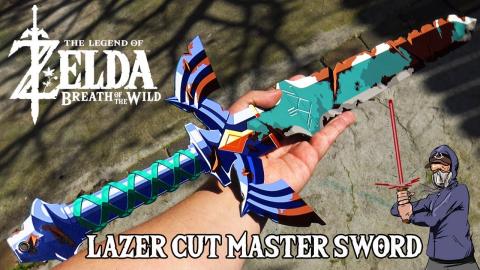Making a Hardwood Planter & 3d Printed Pencil Stand // Woodworking How To
Description
I made a teak planter with a 3d printed base made of pencils!
For 10% off your first purchase, go to http://www.squarespace.com/iltms
Subscribe to my channel: http://bit.ly/1k8msFr
Second Channel: http://bit.ly/iltms-2
MORE PROJECTS, POSTS AND EVENTS
http://www.iliketomakestuff.com
BUY THE PENCIL CONNECTORS FROM SHAPEWAYS
https://www.shapeways.com/shops/i-like-to-make-stuff
TOOLS & SUPPLIES (affiliate links):
https://kit.com/iliketomakestuff/planter-with-3d-printed-pencil-base
https://kit.com/iliketomakestuff/shop-safety-gear
Twitch Stream Every Wednesday @ 11am EST: www.twitch.tv/iliketomakestuff
I WROTE A BOOK!!
http://www.iliketomakestuff.com/makingtime
Want to support ILTMS? Get exclusive content and more...
http://www.iliketomakestuff.com/patreon
BUY A SHIRT, STICKER, DIGITAL PLANS and MORE!!
http://www.iliketomakestuff.com/store
FOLLOW:
http://twitter.com/iliketomakestuf
http://www.twitch.tv/iliketomakestuff
http://instagram.com/iliketomakestuff
http://facebook.com/iltms
It's spring time and for many families that means random flowers, plants, and succulents popping up around your house. My wife wanted to display her garden in a fun way and asked if I could make a cool planter. Because this planter would be holding wet soil, I decided to use some of the teak I had left over from previous projects. Teak resists water and shouldn't rot over time. To add to the uniqueness of this project, I dusted off an old idea that I've had for a while; to make a 3 dimensional shape using 3d printed connectors.
One method of making a wooden ring is to cut angled pieces of wood that, when put together, form a circle. This technique is based on how many segments you are using, but the process is the same. Divide 360 degrees by the number of segments you plan on gluing together and divide that number by 2. Set your saw blades to this angle and get cutting. Take all of the cut pieces and glue them together using some type of circular clapping method, some people use big hose clamps, some ratchet strap clamps, but I'm using blue painter's tape. You should not rush this part (as you can see from the explosion in the video), let the glue have plenty of time to cure.
To mount the cylinder on the lathe, I glued on a sacrificial piece of plywood onto what would become the top of the planter. I drew some centering line on the plywood and mounted the workpiece to my screw chuck. I slowly began to smooth out the exterior, and if you watched the video, you know what happened next...it exploded...and went flying across the room. That was a bummer, but, that's why we take safety precautions and wear the correct protective equipment when using the lathe. I was fine, but I had to start the whole process over again.
With the second piece spinning on the lathe, I decided to go way slower, probably slower than I needed. Comments left in my last lathe video really helped me shape a gradual taper from top to bottom on the planter. Once the outside was smooth, I carved out a rounded area on the bottom that would accept a teak plug to close up the base. I used a variety of methods (parting tool, hand saw, and finally band saw) to remove the sacrificial plywood mount from the top.
Now that I had the turned cylinder, I added the teak plug to the base that I carved out. After the glue dried, I applied a few coats of tung oil and the planter was finished. I really love the golden color of the teak and it's fortunate that it will resist any moisture that comes with gardening. This planter is made to fit plants that come in a 6 inch plastic container form the home stores. My wife picked up some vibrant flowers that would look amazing against the rich wood grain.
I've had this idea of making geometric shapes by connecting standard pencils together in different ways. Pintrest is flooded with simple geometric planters, so I took that as a kick to make my idea into a reality. Josh modeled up a 4-way connector in Fusion 360 that used my I Like to Make Stuff pencils to form an Octahedron, like 2 pyramids joined at the bases. This shape could be turned slightly so that 2 parallel flat surfaces would sit on the table and also hold the planter. We bought a pack a colored pencils to give the base some character and to highlight the plant's color pallet, but any pencils would work.
If you don't have a 3d printer, these small connectors are available on Shapeways, a print-on-demand 3d printing company. If you want to make this base, you'll need 6 connectors and 12 pencils with the eraser fairings removed.
It's al done! This two-part project really highlighted the newness and vibrance of spring at our house. I really love the simplistic beauty of the teak planter, and I dig how customizable and colorful the pencil base can be. My wife really like the planter and the stand and I liked that I didn't get smashed in the face by a flying hunk of wood!


